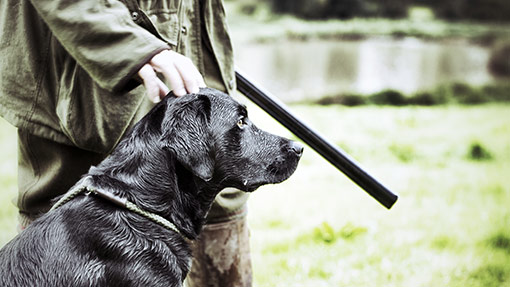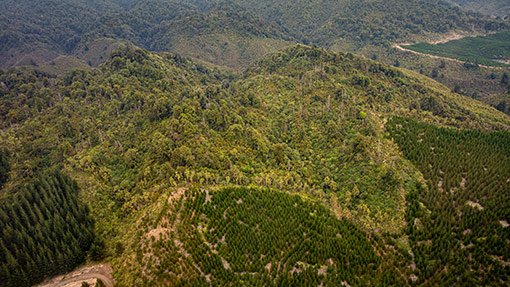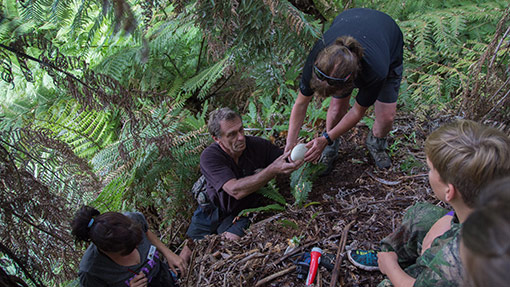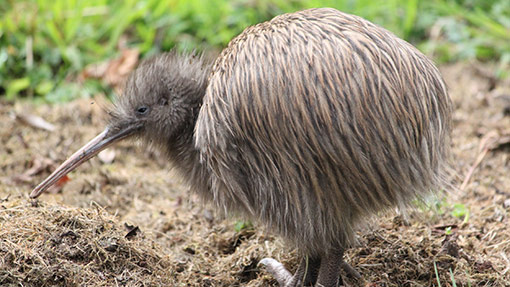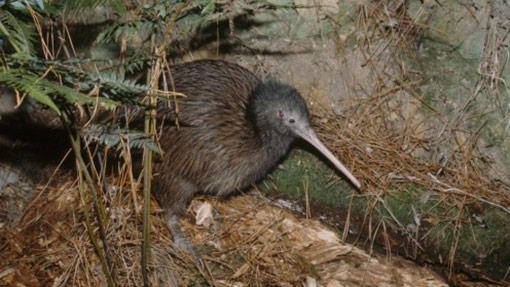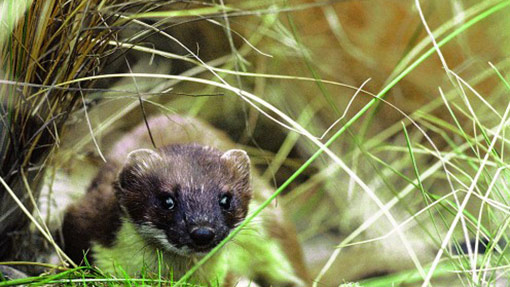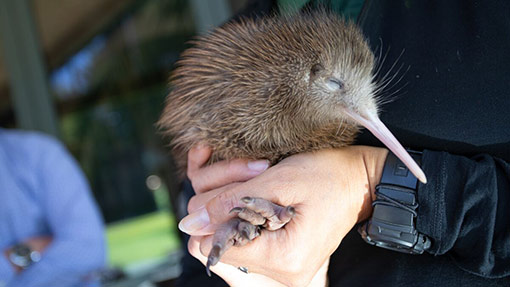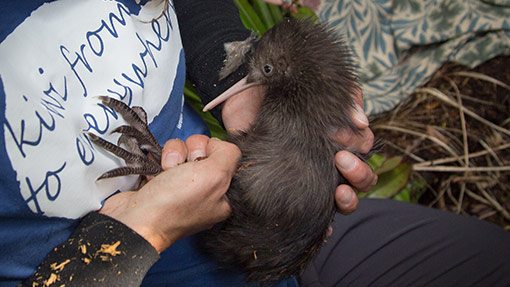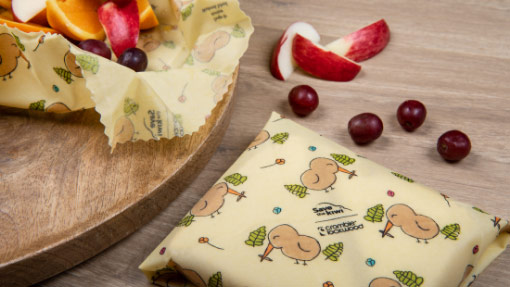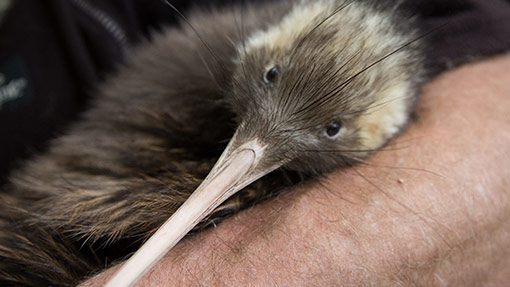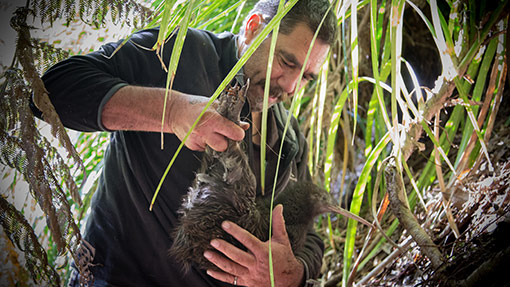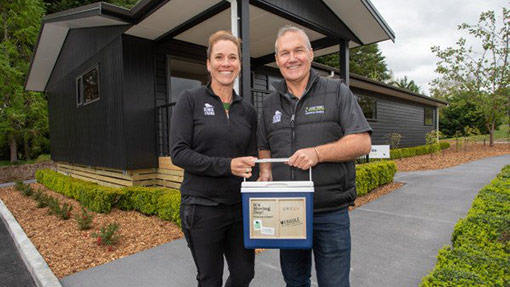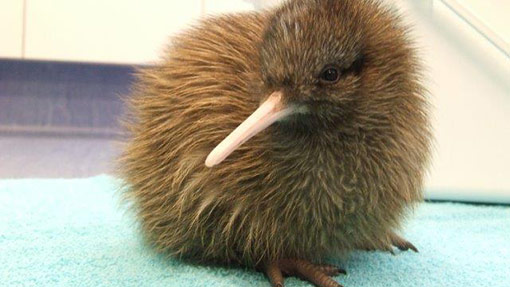Do wild kiwi live on your private property?
Learn how to keep them safe.
A large proportion of kiwi live on privately owned land. While rangers and kiwi project managers look after kiwi and other native wildlife on public land, farmers and landowners must make the necessary measures to protect kiwi that live on their properties too.
If you own, manage, or farm land or own a lifestyle block, there are several things you do can help protect wild kiwi.
Help for farmers & landowners
Here are some guidelines for farmers and landowners to follow when ensuring their properties are safe for kiwi:
- Find out if you have wild kiwi in your area by contacting the Department of Conservation Te Papa Atawhai.
- Control kiwi predators on your land such as possums, pigs, wild cats, stoats, and ferrets.
- Keep dogs under control day and night. Never let them run loose or unsupervised.
- Impound any dogs that are on your property without permission.
- If you let hunters on your land, make sure their dogs have received kiwi avoidance training.
- Keep stock out of places wild kiwi are known to live in by erecting and maintaining fencing.
- If you’re clearing land, leave escape routes for kiwi.
- If you have cattle stops, pits or holes, provide an escape ramp.
- If you have a swimming pool, make sure the fence will keep kiwi out.
- Keep your cat inside at night and put a bell collar around its neck.
- Let neighbours and visitors know that wild kiwi live on your land and what you expect of them and their dogs.
- Consider covenants or other protection for areas of native forest and shrubland. Funding for private landowners is available through the DOC Community Fund – Pūtea Tautiaki Hapori. Nga Whenua Rāhui (covenants) are an option for Māori landowners.
Ask someone from your DOC Area Office to talk with you and your neighbours about kiwi, and how you can keep them safe.
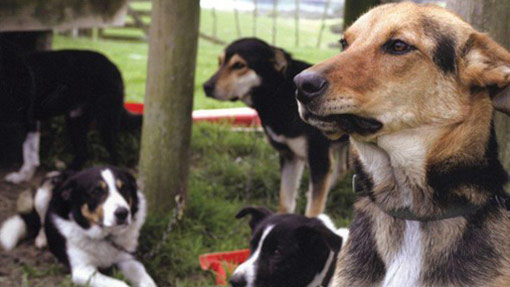
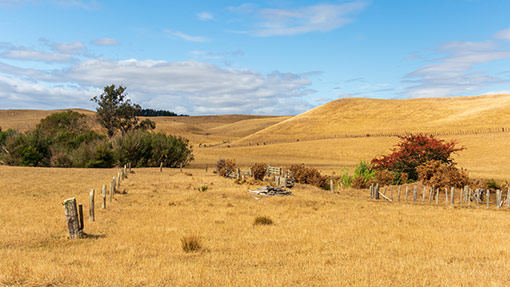
How to help kiwi in a drought
New Zealand is increasingly enduring longer, drier summers, and even during winter rainfall can be very unpredictable. As a result, the ground becomes hard which makes it very difficult for kiwi to probe for food. Because the bills of kiwi chicks are softer than adults’, dry conditions are particularly hard on the young.
Kiwi get a lot of their moisture from their food. When they can’t find food as easily, they’re forced to forage longer and further than usual. This means they have to emerge from their forest habitat in daylight, which increases the risk of being run over by cars or encountering dogs. There’s also a risk of overheating and becoming dehydrated during the day, and some kiwi have drowned in cattle troughs and ponds because they’ve fallen in while looking for water and haven’t been able to get out.
Kiwi usually lay two clutches of eggs every year but during drought conditions they’re less likely to lay their second clutch. This impacts everyone’s efforts to boost the birds’ numbers too.
So how can farmers and landowners help support kiwi populations that live on their land during drought conditions? Here are some tips:
- Put water out for kiwi. Don’t put out food like worms, grubs, or cat food because it will go off in the heat and attract predators.
- If you have low-sided bodies of water (like fishponds, cattle troughs, or swimming pools), put rocks and planks in them to help kiwi climb out should they fall in.
- Always keep your dog under control, day and night.
- Report kiwi that seem to be in trouble to your local DOC Area Office so they can assess and take them into care if required.
- Drought conditions and their impact on kiwi populations reiterates the importance of having a healthy forest, and in particular protecting and enhancing the undergrowth to stop the ground drying out so quickly. Long-term, planting vegetative corridors or removing barriers to allow kiwi to move to wetter areas will be important.
Pet owners
Dogs and kiwi don’t mix. Whether you want to take Murphy, Charlie or Spot on a hike or on holiday, find out how to make sure your dog never meets a kiwi in the wild.
Hunters
Pig, deer, or duck … It doesn’t matter what you like to hunt, you could run into a kiwi in the wild. Find out more about your responsibilities when it comes to kiwi conservation before you head out on your next hunting trip.
Forest owners
Kiwi can thrive in managed plantation forests if a few simple precautions are taken. Learn how you can protect wild kiwi without impacting the management of your forest.
Volunteer
Don’t fall into any of these categories but keen to help? There are plenty of volunteering opportunities available – discover some near your place.


